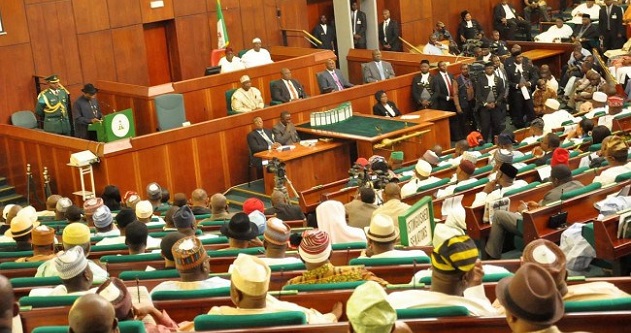News
Reps committee proposes key revisions to tax reform bills

The House of Representatives Committee on Finance has introduced significant modifications to the tax reform bills submitted by President Bola Ahmed Tinubu, retaining some provisions, removing contentious clauses, and adding new ones.
Presenting the committee’s report at the resumption of plenary, Committee Chairman Rep. James Abiodun Faleke outlined the proposed changes, which include adjustments to VAT rates, inheritance tax, funding for key agencies, and corporate tax rates.
Key Changes Recommended by the Committee
1. VAT Increase Rejected
While the original bill proposed a phased VAT increase from 7.5% to 15% by 2030, the committee recommended maintaining the current 7.5% rate, citing economic concerns.
2. Modification of Inheritance Tax
The committee revised the proposed inheritance tax provision. Initially, estates left by deceased individuals were to be taxed. However, the new recommendation states that only heirs who invest their inherited assets in income-generating businesses will be subject to taxation.
3. TETFUND, NITDA, NASENI to Retain Funding
A provision in the original bill sought to end funding for Tertiary Education Trust Fund (TETFUND), the National Information Technology Development Agency (NITDA), and the National Agency for Science and Engineering Infrastructure (NASENI) by 2030. The committee rejected this proposal and instead recommended continued funding, with additional agencies benefiting from the 4% development levy fund.
Under the revised allocation:
– TETFUND – 50%
– Nigerian Education Loan Fund – 3%
– NITDA – 5%
– NASENI – 10%
– Social Security Fund – 10%
– Defence Infrastructure Fund – 10%
– Nigeria Police Trust Fund – 5%
– National Sports Development Fund – 3%
– National Board for Technological Incubation – 3%
– National Cybersecurity Fund – 1%
Each beneficiary agency must submit its income and expenditure reports to the National Assembly for appropriation.
4. VAT Returns Deadline Adjusted
The bill initially required taxable individuals to submit VAT returns, regardless of business activity, by a date specified by the tax authority. The committee recommended setting a fixed deadline of the 21st day of the following month for all VAT filings.
5. Tax Revenue Attribution Based on Consumption
A proposed clause required tax returns to specify the location where taxable transactions occurred. The committee revised this to focus on where consumption happens, rather than where the return is filed.
6. Tax ID Registration Timeline Extended
The bill mandated tax authorities to approve or deny Tax Identification Number (TIN) registration requests within two working days. The committee extended this to five working days, requiring tax authorities to provide reasons for any denial.
7. Fiscalisation System Implementation Revised
The original bill proposed that businesses must use an Electronic Fiscal System (EFS) for recording and reporting taxable transactions. The committee modified this, stating that the tax authority must specify the fiscalisation system to be adopted and allow a transition period for implementation.
8. Monthly Tax Deduction Returns Requirement Maintained
The committee upheld the requirement that businesses responsible for deducting and remitting taxes must submit monthly returns to the appropriate tax authority, as specified by regulations.
9. Corporate Tax Rate Adjustments
The original bill proposed that:
– Small businesses be taxed at 0%
– Other companies be taxed at 27.5% in 2025, and 25% from 2026 onward
The committee revised this, recommending:
– 0% tax for small companies
– 30% tax for other companies, except those in priority sectors
– 25% tax for companies in priority sectors (as defined in the Eleventh Schedule), applicable during the priority period.
Next Steps
The House of Representatives is set to begin a clause-by-clause consideration of the tax reform bills on Thursday. With these major revisions, the proposed tax framework is expected to undergo significant debate before final passage.
Join the conversation
Support Ripples Nigeria, hold up solutions journalism
Balanced, fearless journalism driven by data comes at huge financial costs.
As a media platform, we hold leadership accountable and will not trade the right to press freedom and free speech for a piece of cake.
If you like what we do, and are ready to uphold solutions journalism, kindly donate to the Ripples Nigeria cause.
Your support would help to ensure that citizens and institutions continue to have free access to credible and reliable information for societal development.


























